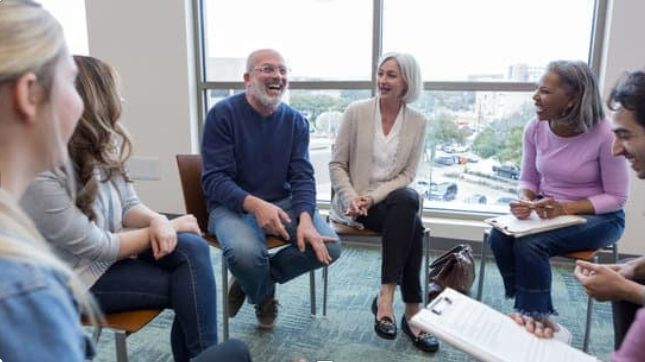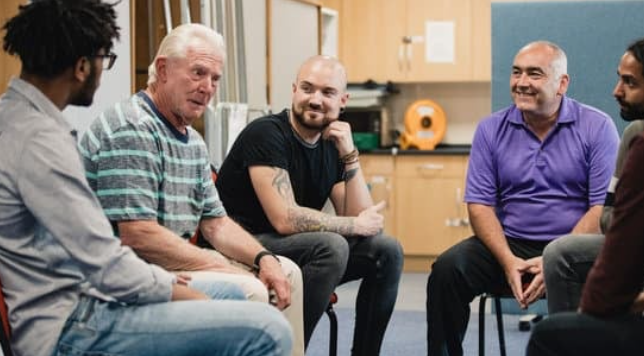
Do traditional rehab programs really meet the unique needs of women battling addiction?
Many women enter recovery carrying not only substance use struggles but also the weight of trauma, parenting responsibilities, and mental health challenges.
In mixed-gender treatment settings, they often feel unable to open up about these deeply personal issues.
This is where gender-specific rehab programs change the game. Research shows that women in gender-focused groups report feeling safer, receive more emotional support, and experience stronger long-term recovery results.
For example, women-only groups produce 66% more supportive interactions in therapy and maintain their treatment gains longer than those in mixed settings.
This article will walk you through why gender-specific rehab matters, the science behind addiction differences, key components that make these programs effective, and what this means for families and communities.
If you or a loved one is struggling, we can help you understand why finding the right program personalized to gender needs could be a life-changing step.
Story of Sarah: Case Example to Highlight Real-life Experience
When Sarah entered addiction treatment for the third time, something was different. Instead of sitting in a mixed group where she felt judged discussing her history of sexual trauma and struggles as a single mother, she found herself in a women-only program that addressed her specific needs. Six months later, she was still sober, a first in her recovery journey.
How Do Men and Women Experience Addiction Differently?
Men and women experience addiction differently from the very beginning. Women often progress more rapidly from first use to dependence, a phenomenon researchers call “telescoping”.
This means women may arrive at treatment with more severe medical and psychological problems despite using substances for a shorter time.
The differences run deeper than timing. Women with substance use disorders have much higher rates of trauma, particularly sexual abuse and intimate partner violence, compared to men.
They’re also more likely to struggle with depression, anxiety, and eating disorders alongside their addiction.
These aren’t just statistics, they’re barriers to recovery that traditional, one-size-fits-all programs often miss.
Why Do Gender-Specific Programs Work Better?
Research shows that women in gender-specific rehab programs experience measurably different outcomes than those in mixed-gender settings.
- Women-only groups produce about 66% more supportive, affiliative statements during therapy sessions compared to mixed groups. This increased emotional support translates into real results.
- In controlled studies comparing women-only to mixed-gender programs, participants in women-only groups showed equivalent improvement during treatment but maintained their gains better after treatment ended.
- While mixed-gender participants often relapsed to baseline levels within six months, women-only participants continued improving.
The reasons become clear when you listen to participants. In interviews, women in gender-specific programs consistently described feeling safer, less judged, and more able to discuss sensitive topics like trauma, relationships, and parenting challenges that directly related to their substance use.

3 Key Components That Make Gender-Specific Rehab Effective
Gender-specific rehab works best when programs address the real-life barriers women face, not just their addiction. Support that focuses on trauma, family needs, and accessibility creates stronger, lasting recovery outcomes.
Here are the three components that matter most:
Trauma-Informed Care
Gender-responsive programs that explicitly address trauma show significant benefits.
In one randomized study of incarcerated women, those receiving gender-responsive treatment had 31% re-incarceration rates compared to 45% for those in standard programs. The difference came from addressing trauma alongside addiction rather than treating them separately.
Integrated Support Services
Programs that work best for women don’t just treat addiction, they address the whole person.
Systematic reviews show that integrated programs combining addiction treatment with prenatal care, parenting support, and childcare produce better outcomes in maternal mental health, birth outcomes, and long-term recovery.
This makes practical sense. A mother struggling with addiction can’t focus on recovery if she’s worried about who’s watching her children during treatment sessions.
Flexible Treatment Access
The COVID-19 pandemic forced rapid changes in how addiction treatment is delivered, creating natural experiments in what works.
Telemedicine and flexible medication policies increased access and retention, particularly benefiting women with caregiving responsibilities who couldn’t easily travel to clinics daily.
Extended take-home policies for methadone, when implemented safely, reduced treatment burden while maintaining effectiveness—changes that disproportionately helped women juggling recovery with family responsibilities.
Case Studies and Evidence from Gender-Specific Rehab
Consider the outcomes from well-designed studies:
| Program Type | Key Features | Results |
| Women-only with wraparound services | Childcare, trauma therapy, case management | Better substance use outcomes, higher completion rates |
| Gender-responsive prison programs | Trauma-informed curricula, aftercare planning | 31% vs 45% re-incarceration rates |
| Integrated mother-child programs | Prenatal care, parenting support, therapeutic childcare | Improved maternal mental health, better birth outcomes |
These aren’t small improvements—they represent the difference between successful recovery and continued cycling through the system.
How Are Modern Programs Evolving?
Modern gender-specific programs are expanding beyond simple segregation by sex.
They’re incorporating digital health interventions personalized to address barriers women face, like lack of transportation or fear of stigma.
Mobile treatment units and low-threshold approaches bring services directly to women in their communities.The most innovative programs recognize that recovery looks different for everyone.
Instead of focusing solely on abstinence, they measure success through improved quality of life, better parenting capacity, reduced criminal justice involvement, and enhanced mental health.

How Gender-Specific Care Benefits Families and Communities?
The gender gap in substance use disorders has been narrowing over the past two decades, with more women developing alcohol and prescription drug problems. This trend increases demand for services designed with women’s needs in mind.
At the same time, the opioid crisis has highlighted how traditional treatment models often fail women.
Pregnant women with opioid use disorder face particular challenges accessing care that addresses both their addiction and their pregnancy safely.
Gender-specific rehab programs aren’t about excluding men, they’re about recognizing that effective treatment must address the different pathways that lead women to addiction and the unique barriers they face in recovery.
When programs get this right, everyone benefits: women achieve better outcomes, families stay together, and communities see reduced crime and improved public health.
The evidence is clear: gender matters in addiction treatment. Programs that acknowledge and address these differences don’t just improve statistics, they save lives.
Conclusion
Addiction doesn’t impact men and women the same way, and treatment shouldn’t either.
Research clearly shows that gender-specific rehab programs create safer environments, provide stronger emotional support, and deliver better long-term recovery outcomes, especially for women facing trauma, parenting responsibilities, or mental health challenges alongside addiction.
By integrating trauma-informed care, wraparound family services, and flexible access options, these programs address the full picture of a woman’s recovery journey.
If you or a loved one is struggling, now is the time to act. Call us today or fill out the form on our website to schedule your first consultation. At MARR, we provide personalized, gender-responsive care designed to meet your unique needs. Together, we can take the first step toward lasting recovery, stronger families, and a healthier future.
